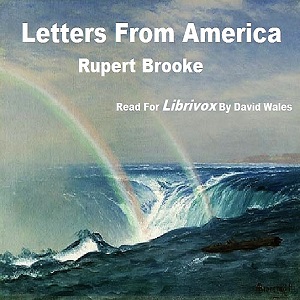
Short Poetry Collection 078
This is a collection of poems read by LibriVox volunteers during the month of April 2009. [chương_files]











This is a collection of poems read by LibriVox volunteers during the month of April 2009. [chương_files]

Henry Louis “H. L.” Mencken (1880 – 1956) was an American journalist, essayist, magazine editor, satirist, acerbic critic of American life and culture, and a student of American English. Known as the “Sage of Baltimore”, he is regarded as one of the most influential American writers and prose stylists of the first half of the 20th century. Mencken is perhaps best remembered today for The American Language, a multi-volume study of how the English language is spoken in the United States, and for his satirical reporting on the Scopes trial, which he named the “Monkey” trial.” [chương_files]

Ralph Waldo Emerson (1803 – 1882) was an American essayist, philosopher, and poet, best remembered for leading the Transcendentalist movement of the mid 19th century. His teachings directly influenced the growing New Thought movement of the mid-1800s. [chương_files]

Shakespeare’s Sonnets, or simply The Sonnets, comprise a collection of 154 poems in sonnet form written by William Shakespeare that deal with such themes as love, beauty, politics, and mortality. The poems were probably written over a period of several years. (Summary from Wikipedia) [chương_files]

A collection of 48 prose and poetry selections written principally in the 18th Century. These works of world literature are written in the English language or are in English translation. [chương_files]

“On the road to Cairo one may see twenty groups exactly like that of the Holy Family in the pictures of the Flight into Egypt; with only one difference. The man is riding on the ass.” “The real mistake of the Muslims is something much more modern in its application than any particular passing persecution of Christians as such. It lay in the very fact that they did think they had a simpler and saner sort of Christianity, as do many modern Christians. They thought it could be made universal merely by being made uninteresting. Now a man preaching what he thinks is a platitude is far more intolerant than a man preaching what he admits is a paradox. It was exactly because it seemed self-evident, to Muslims as to Bolshevists, that their simple creed was suited to everybody, that they wished in that particular sweeping fashion to impose it on everybody.” [chương_files]

A collection of reprinted articles on a wide-range of subject, all in the unique style of G. K. Chesterton. Using wit, paradox, and good humor he “defends” a series of seeming harmless things that need no defense, and in so doing he exposes many of the broken assumptions and dogmatic notions of secular humanism and other trends of his age and of ours. [chương_files]

In July 1879, Robert Louis Stevenson left Scotland to meet his future wife in her native California. Leaving by ship from Glasgow, Scotland, he determined to travel in steerage class to see how the working classes fared. At the last minute he was convinced by friends to purchase a ticket one grade above the lowest price, for which he was later thankful after seeing the conditions in steerage, but he still lived among the ‘lower’ classes. His comments on the experience make interesting reading. His father however was so shocked at the thought of his son associating with people ‘beneath him’ that the work was not published for a number of years, [chương_files]

A selection of Shakespeare’s poems from The Oxford Book of English Verse: 1250–1900. (Summary by Clarica) [chương_files]

“Second, when telling such lies as may seem necessary to your international standing, do not tell the lies to the people who know the truth. Do not tell the Eskimos that snow is bright green; nor tell the negroes in Africa that the sun never shines in that Dark Continent. Rather tell the Eskimos that the sun never shines in Africa; and then, turning to the tropical Africans, see if they will believe that snow is green. Similarly, the course indicated for you is to slander the Russians to the English and the English to the Russians; and there are hundreds of good old reliable slanders which can still be used against both of them. There are probably still Russians who believe that every English gentleman puts a rope round his wife’s neck and sells her in Smithfield. There are certainly still Englishmen who believe that every Russian gentleman takes a rope to his wife’s back and whips her every day. But these stories, picturesque and useful as they are, have a limit to their use like everything else; and the limit consists in the fact that they are not true, and that there necessarily exists a group of persons who know they are not true. It is so with matters of fact about which you asseverate so positively to us, as if they were matters of opinion.” (Gilbert Keith Chesterton) [chương_files]
Copyright © 2024 | FreeAudible